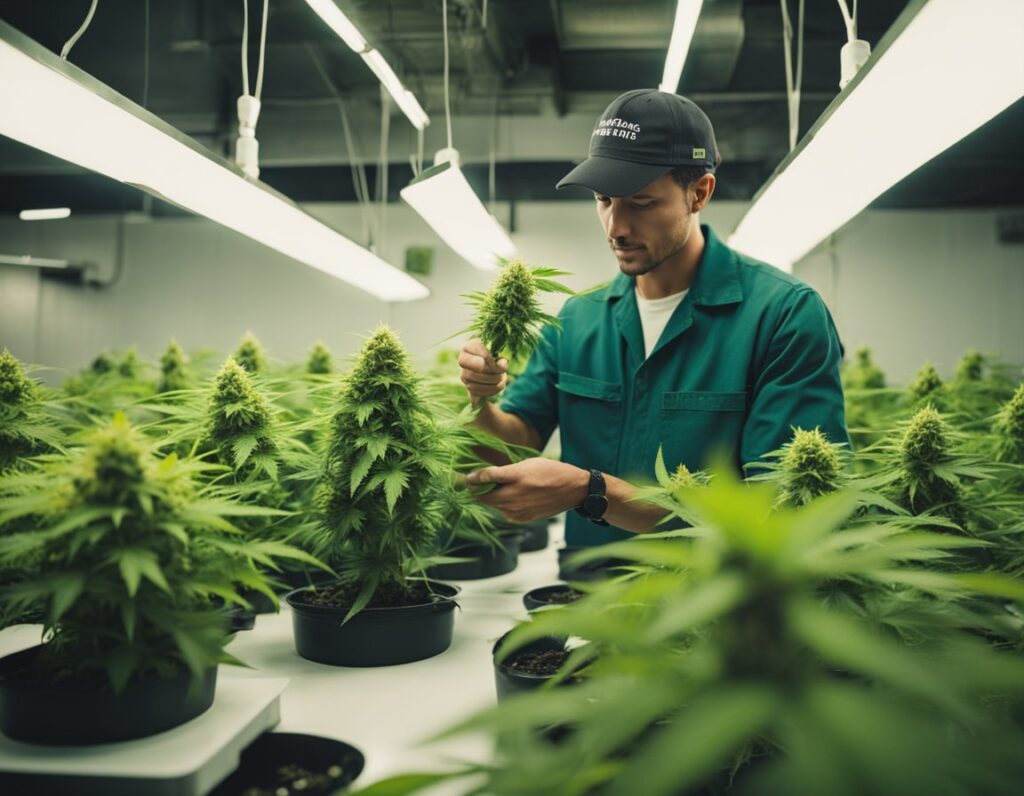
Cannabis cloning is a method of propagation that allows growers to produce genetically identical plants from a single mother plant. This process offers distinct advantages over traditional seed cultivation, including consistency in genetics and the preservation of desirable traits. For growers in Vancouver, choosing to clone marijuana plants Vancouver provides a reliable way to maintain these qualities in local growing environments.
Cloning offers several advantages compared to growing from seeds. Firstly, clones ensure genetic consistency, which is vital for growers seeking to replicate specific traits, such as yield or potency. Unlike seeds, which can vary due to genetic recombination, clones provide a uniform crop.
Additionally, cloning can expedite the growth cycle. While seeds require time to germinate and establish roots, clones can be rooted and ready to grow much faster, typically within 1-2 weeks. This shorter timeline allows for more harvests per year, optimizing space and resources.
Moreover, clones can retain the unique qualities of the mother plant, whether it is an indica, sativa, or hybrid strain, ensuring that those characteristics are preserved and cultivated in subsequent generations.
Understanding genetics is crucial in cannabis cloning. Growers should select a healthy mother plant that exhibits desirable traits, as the clones will inherit these characteristics. Factors to consider include cannabinoid profiles, growth patterns, and pest resistance.
Sativa, indica, and hybrid strains each offer unique benefits. Sativas are typically uplifting and energetic, while indicas provide relaxation and sedation. Hybrids may combine traits from both, offering versatility in cultivation.
When selecting strains, growers should consider their specific needs and environment. A well-chosen mother plant can yield clones that perform predictably, ensuring that growers can achieve their desired outcomes while minimizing variability in growth and quality.
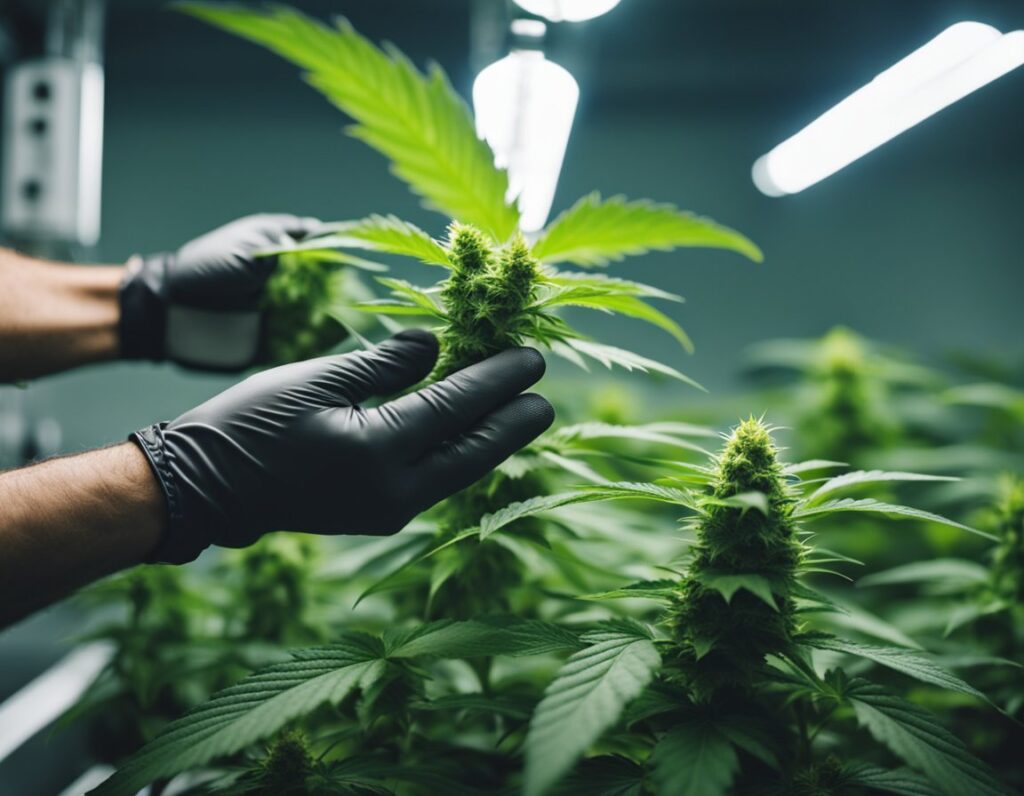
Choosing the right mother plant is critical for successful cloning. A high-quality mother ensures that the clones will inherit desirable traits. Key factors to consider include specific criteria for selection and the proper care of the mother plant.
When selecting a mother plant, experienced growers consider several key factors. First, it should be a healthy cannabis plant that exhibits robust growth. Look for:
The ideal mother plant possesses mature yet flexible branches for easier cutting. It should also have a good yield and robust branching to provide multiple clones efficiently.
Proper care is essential for maintaining the health of the mother plant. Growers should ensure optimal conditions, including:
Regular pruning encourages bushier growth and provides ample material for cloning. Additionally, maintaining a controlled environment, with appropriate temperature and humidity levels, ensures the plant remains healthy and productive. With proper selection and care, the mother plant can be an endless source of clones for producing quality products.
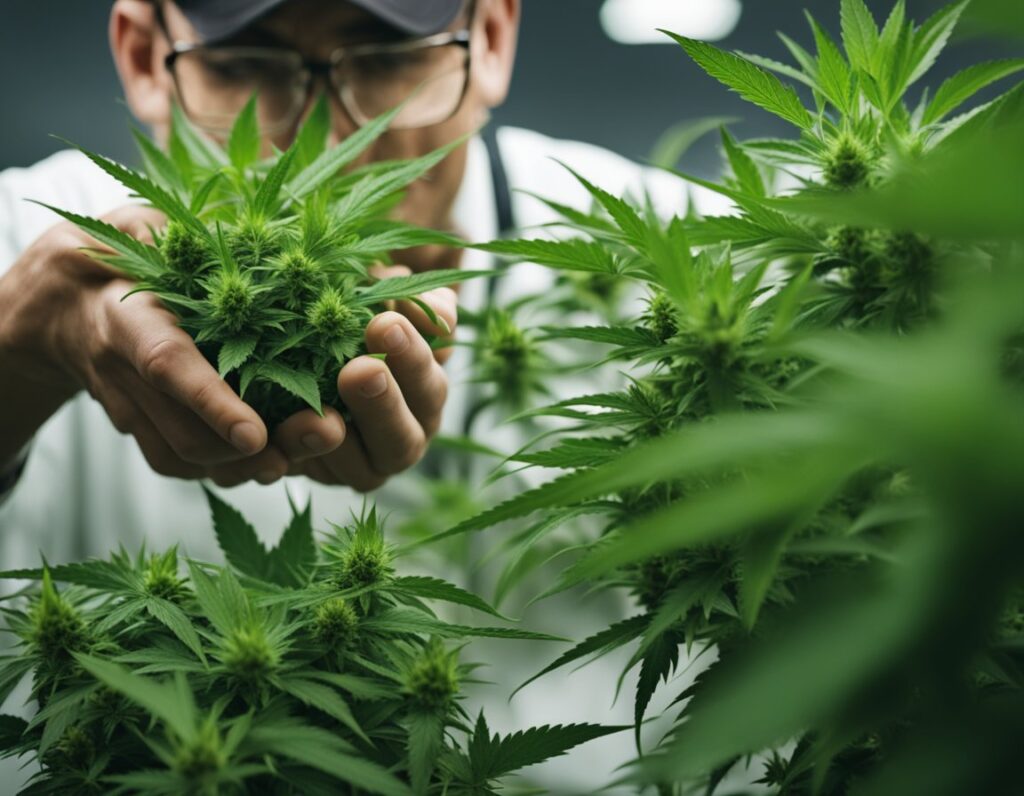
Cloning marijuana plants involves precise techniques to ensure successful root development and growth. The key steps include proper cutting techniques, applying rooting hormone, and careful transplanting of clones into their new environment.
Selecting the right cuttings is critical. A grower should choose healthy shoots during the vegetative stage, ideally those with a few nodes. The best time for taking cuttings is early in the day when the mother plant is well-hydrated.
Using a clean, sharp razor or scissors, a cutting should be taken about 4 to 6 inches long. The cut should be made at a 45-degree angle to increase the surface area for rooting. After cutting, remove any lower leaves to prevent rot when submerged in water or soil.
It’s advisable to take multiple cuttings since not all may survive the rooting phase. This increases the chances of successfully cloning strong plants.
Rooting hormone encourages faster root development, making it an essential part of the cloning process. The grower can choose between powder, gel, or liquid formulations. Each type helps create a conducive environment for rooting by promoting cell growth.
To apply, simply dip the base of each cutting into the rooting hormone, ensuring it is entirely covered. This should be done immediately after cutting to prevent air from entering the stem, which can hinder rooting.
This application enhances the likelihood of clones developing robust roots, facilitating a smoother transition to their new growing medium. Timing is crucial since rooting hormones work best in the vegetative stage rather than during flowering.
After the cuttings have been treated with rooting hormone, it is time to transplant them. The grower should prepare a suitable medium, such as rockwool cubes or soil, ensuring it is pre-moistened to minimize shock.
A hole should be made in the medium that accommodates the cutting. It’s important not to compact the medium too tightly around the clone’s base, as this can restrict root expansion.
After transplanting, the clones should be placed in a humidity dome or a well-lit area to maintain moisture levels. Regular misting can support a humid environment, crucial for root development. Monitoring light exposure during this phase is essential to prevent stress on the clones.
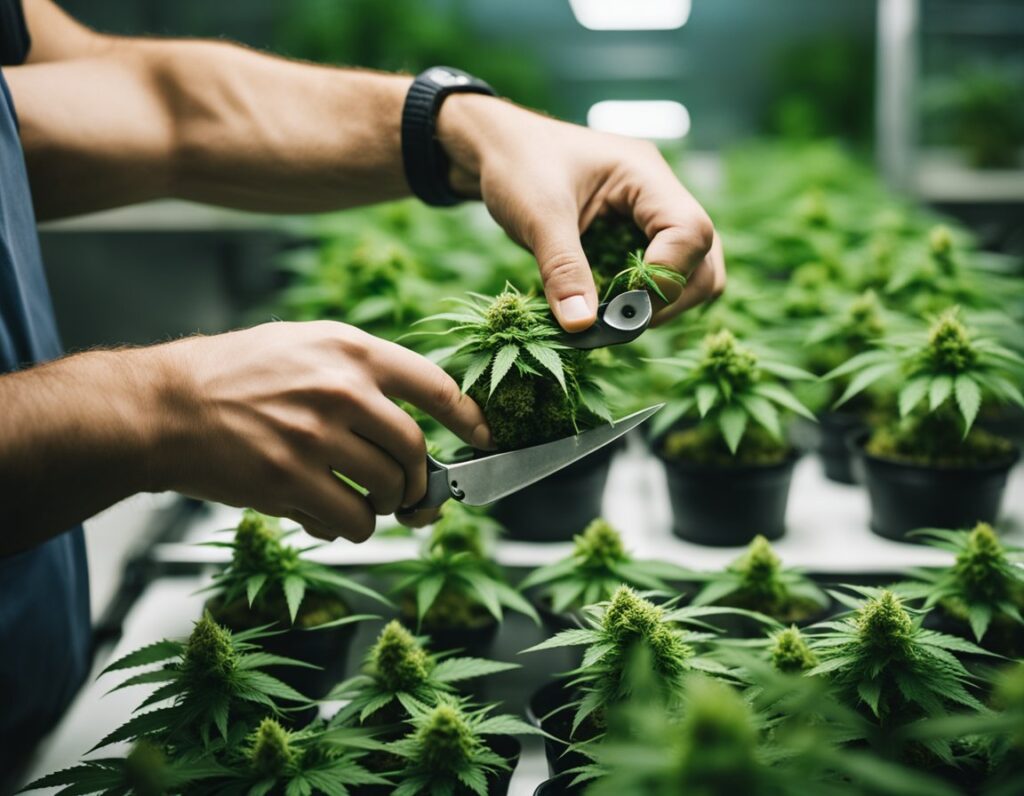
When nurturing cannabis clones, maintaining optimal conditions is essential for healthy root development and overall plant vigor. Focusing on humidity and temperature will help ensure the clones thrive as they acclimate to their new environment.
For successful rooting, clones require a specific environment. The rooting medium plays a critical role, with options like rockwool being popular due to excellent moisture retention and aeration properties.
Key factors include:
Regularly monitor the clones for vibrant colors and sturdy stems, indicative of healthy development.
Humidity is crucial for clones as they lack roots to absorb water. Ideally, maintain humidity levels between 70% and 80% during the initial stages.
By managing these environmental factors, growers will better support their cannabis clones during this delicate phase, facilitating robust root development and strong growth.
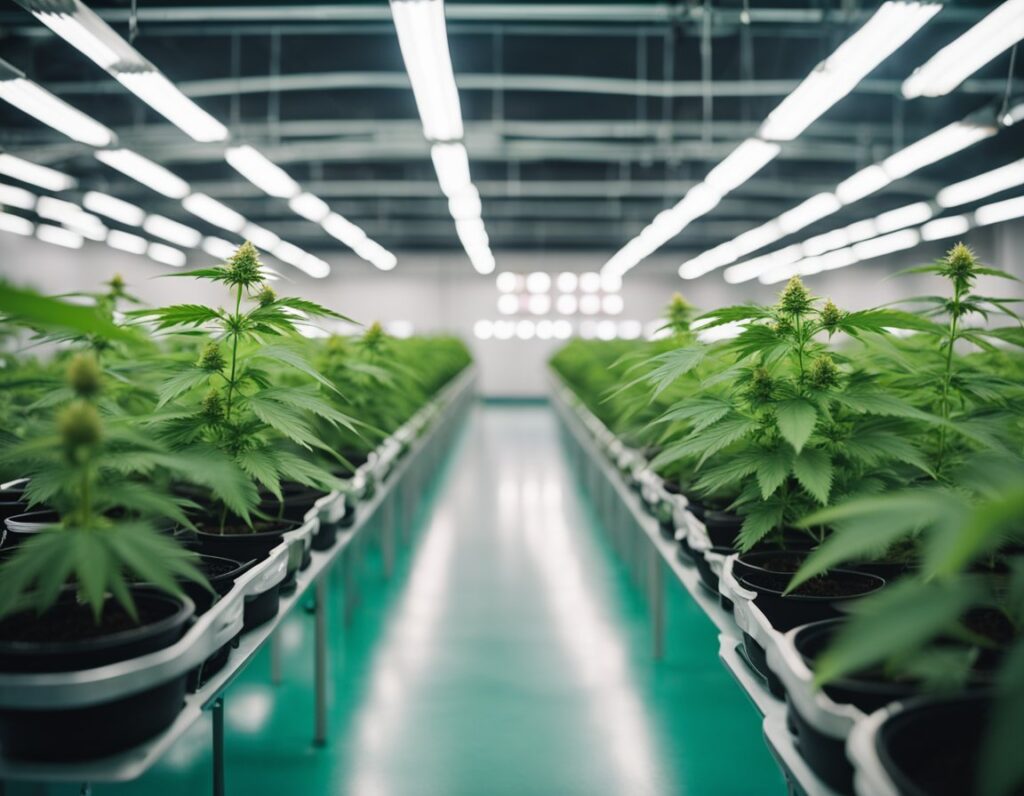
Navigating cannabis legislation is crucial for anyone interested in cultivating marijuana in Vancouver. Understanding legal considerations around cloning and the requirements for starting a nursery can significantly impact success in this field.
In Canada, the Cannabis Act regulates the cultivation of cannabis, including cloning practices. Cannabis enthusiasts can clone their plants but must adhere to specific limits. Adults over 19 can grow up to four cannabis plants per household, which influences cloning opportunities.
Cloning practices must comply with local regulations, including those mandated by provincial authorities. Cultivators must ensure they do not exceed personal cultivation limits. It is also important to understand that selling clones without proper licensing may lead to penalties. Knowledge of federal and provincial guidelines is essential for compliance and protecting one’s investment.
Establishing a nursery for cannabis clones in Vancouver involves understanding both local bylaws and federal regulations. Proper licensing is required to operate legally. This includes the federal license from Health Canada for cultivation, which dictates the standards for production and distribution.
The nursery must also comply with municipal regulations regarding zoning and business operations. It is wise to conduct thorough research on all applicable regulations before starting. Adhering to these laws ensures a smoother process for growing and distributing cannabis plants commercially.
Proper knowledge of legislation aids in avoiding legal issues while optimizing business strategies. For those considering a cannabis nursery, keeping communication open with regulatory bodies is vital for ongoing compliance.
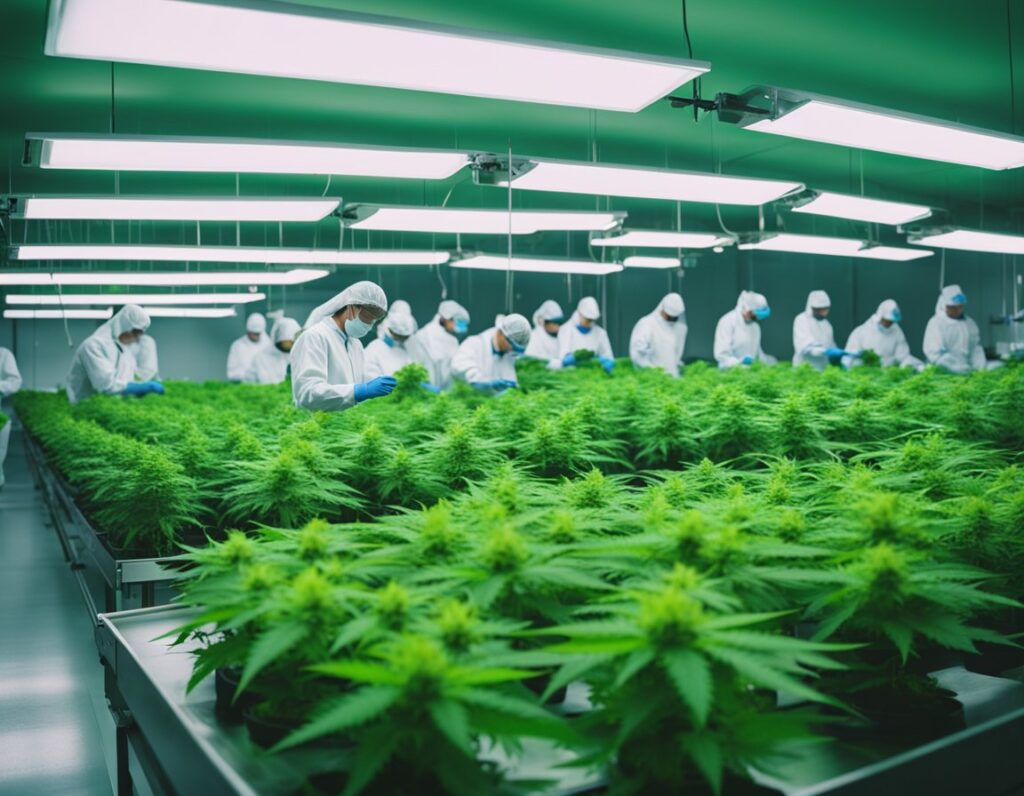
Selecting a professional cloning facility is essential for successful cannabis cultivation. A reputable facility ensures healthy, robust clones that can thrive in various environments.
When considering a cloning facility, look for the following attributes:
Evaluate the nursery’s setup to ensure it meets necessary growing conditions:
In addition, inquire about the facility’s cloning practices. A professional cloning facility typically employs:
Finally, consider the facility’s reputation. Positive reviews and recommendations from other growers can indicate reliability and quality. Choosing a professional cloning facility sets the foundation for a successful growing experience.
Cloning marijuana plants effectively requires understanding specific techniques and considerations. The following addresses common queries to help ensure success in this process.
The most efficient method involves selecting a healthy mother plant and taking cuttings from it. Using sterile tools, make clean cuts at a 45-degree angle just below a node. This technique maximizes the chances of successful rooting.
Cloning in water is possible. After taking cuttings, immediately place them in a container of water to avoid air bubbles forming in the stems. Keep the cuttings submerged until roots develop, typically within a week or two.
In Vancouver, individuals should be aware of local laws concerning cannabis cultivation. Cloning is permissible under the law, but the number of plants allowed may be limited, depending on whether the cannabis is for personal use or commercial purposes.
To encourage quick rooting, maintain high humidity levels and a stable environment. Use a rooting hormone on cut ends and provide bottom heat through a heat mat, which can enhance root development.
Honey can serve as a natural rooting agent due to its antimicrobial properties. Applying honey to the cut ends of clones may promote healthy root growth and prevent disease during the rooting process.
We ship and deliver world wide via USPS and various couriers.
We offer a wide range of secure and anonymous online payment options.
We care about you, our customer. Please contact us with any questions or concerns.
Find out more about the benefits of being a loyal and regular customer.
WE ARE EVERY GROWERS ONE STOP SHOP TO ACQUIRE PREMIUM CANNABIS SEEDS FOR SALE IN THE USA, CANADA AND AUSTRALIA

Farmers Lab Seeds 2024, | All Right Reserved
Seeds are sold as novelty items, souvenirs, and collectibles. They contain 0% THC. We encourage our customers to check the legislation in their Country, State, Province, and Municipality prior to purchasing items from our store. We do not provide growing information.
All seeds are sold as hemp, and lab tested under 0.3% THC. This product is not for use by or sale to persons under the age of 21. This product should be used only as directed on the label. It should not be used if you are pregnant or nursing. Consult with a physician before use if you have a serious medical condition or use prescription medications. A Doctor’s advice should be sought before using this and any supplemental dietary product. All trademarks and copyrights are property of their respective owners and are not affiliated with nor do they endorse this product.
These statements have not been evaluated by the FDA. This product is not intended to diagnose, treat, cure or prevent any disease. Individual weight loss results will vary. By using this site, you agree to follow the Privacy Policy and all Terms & Conditions printed on this site. Void Where Prohibited by Law.